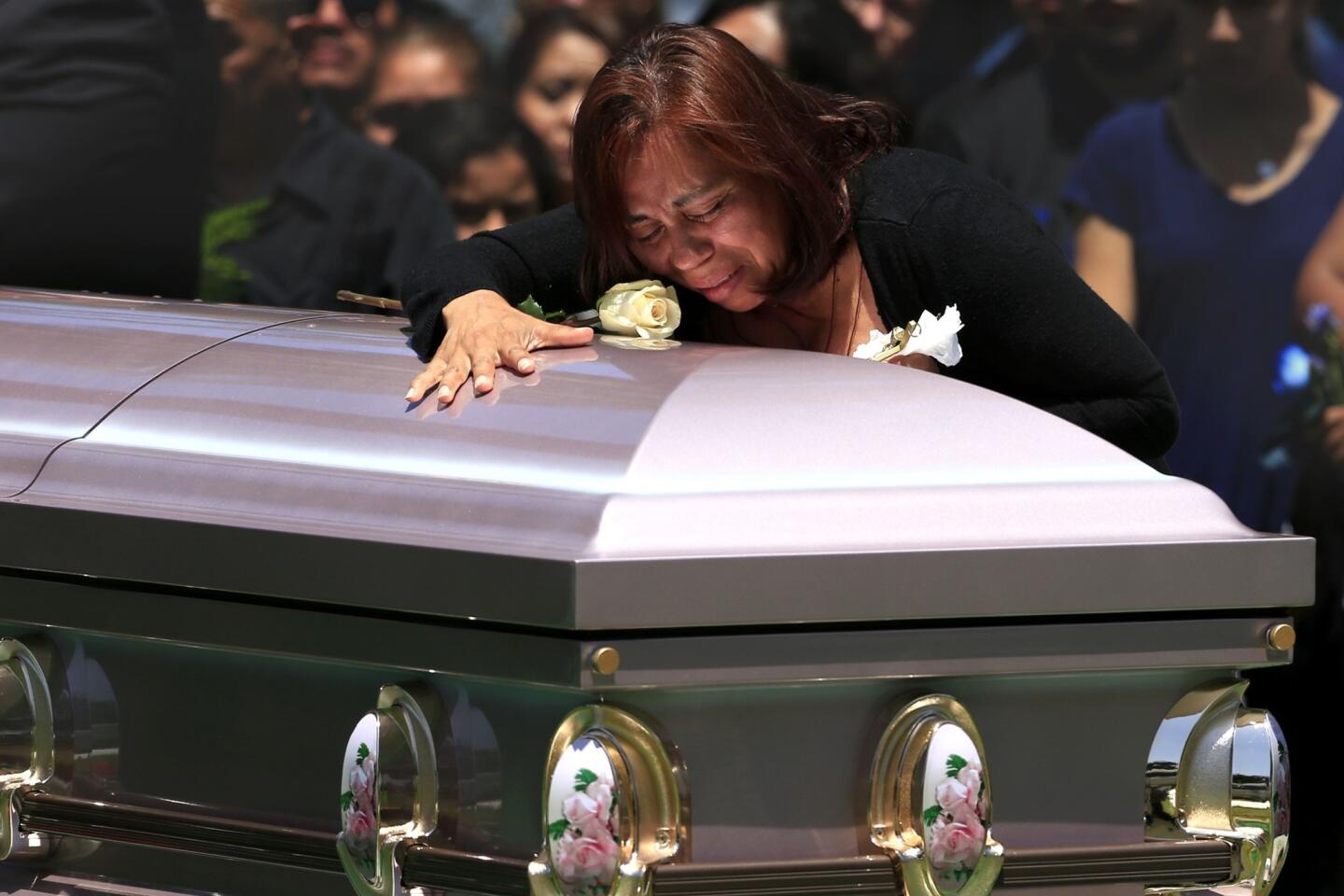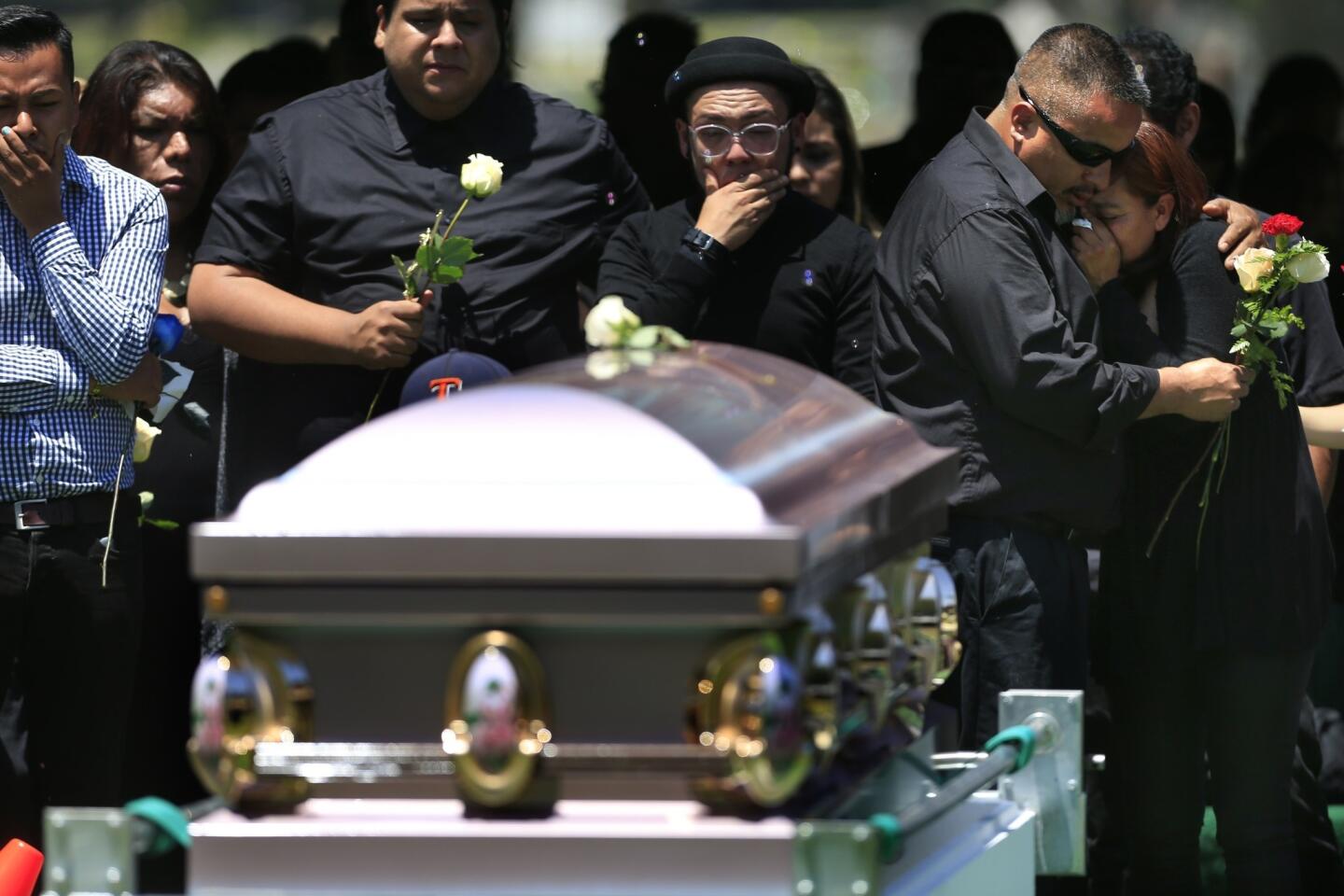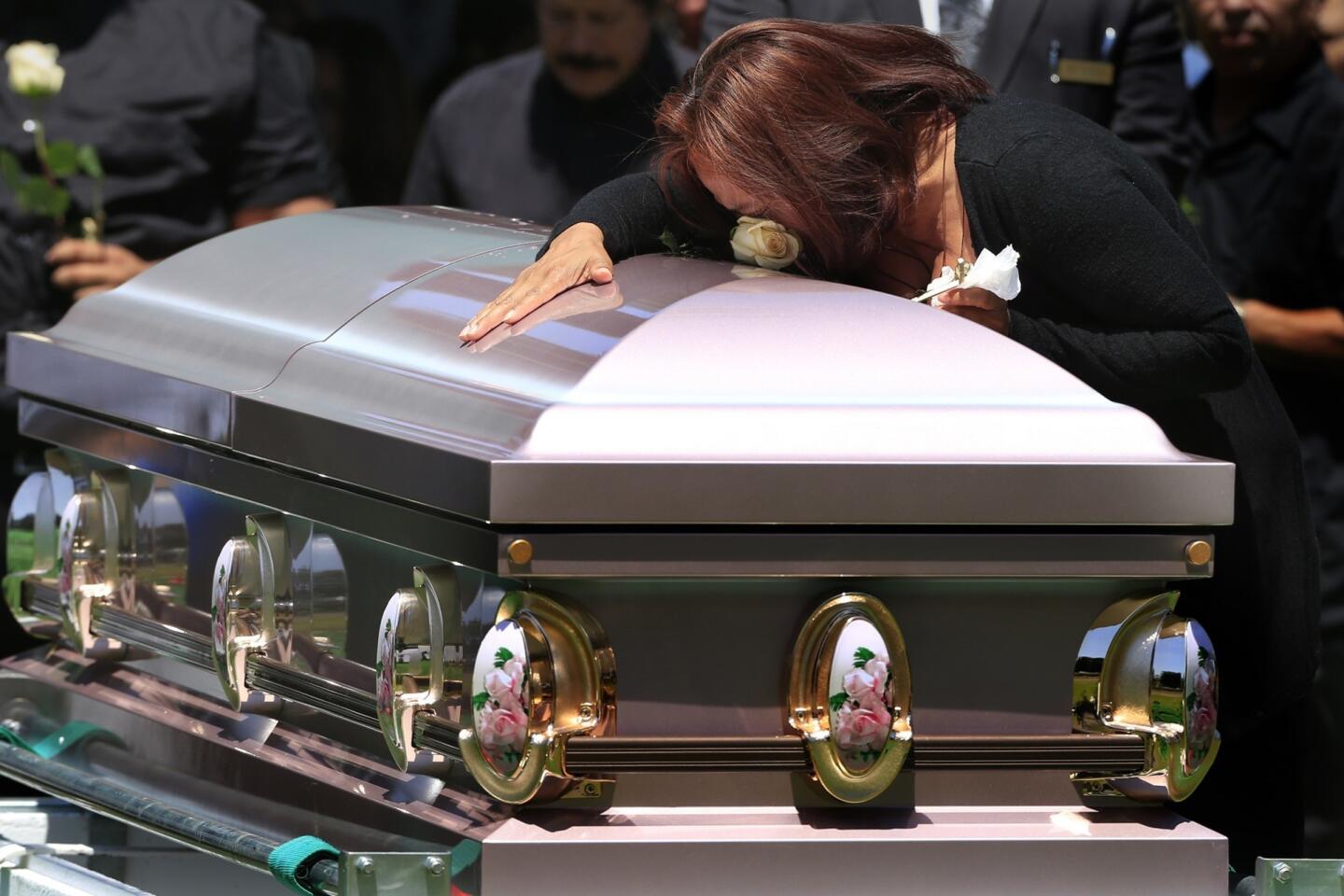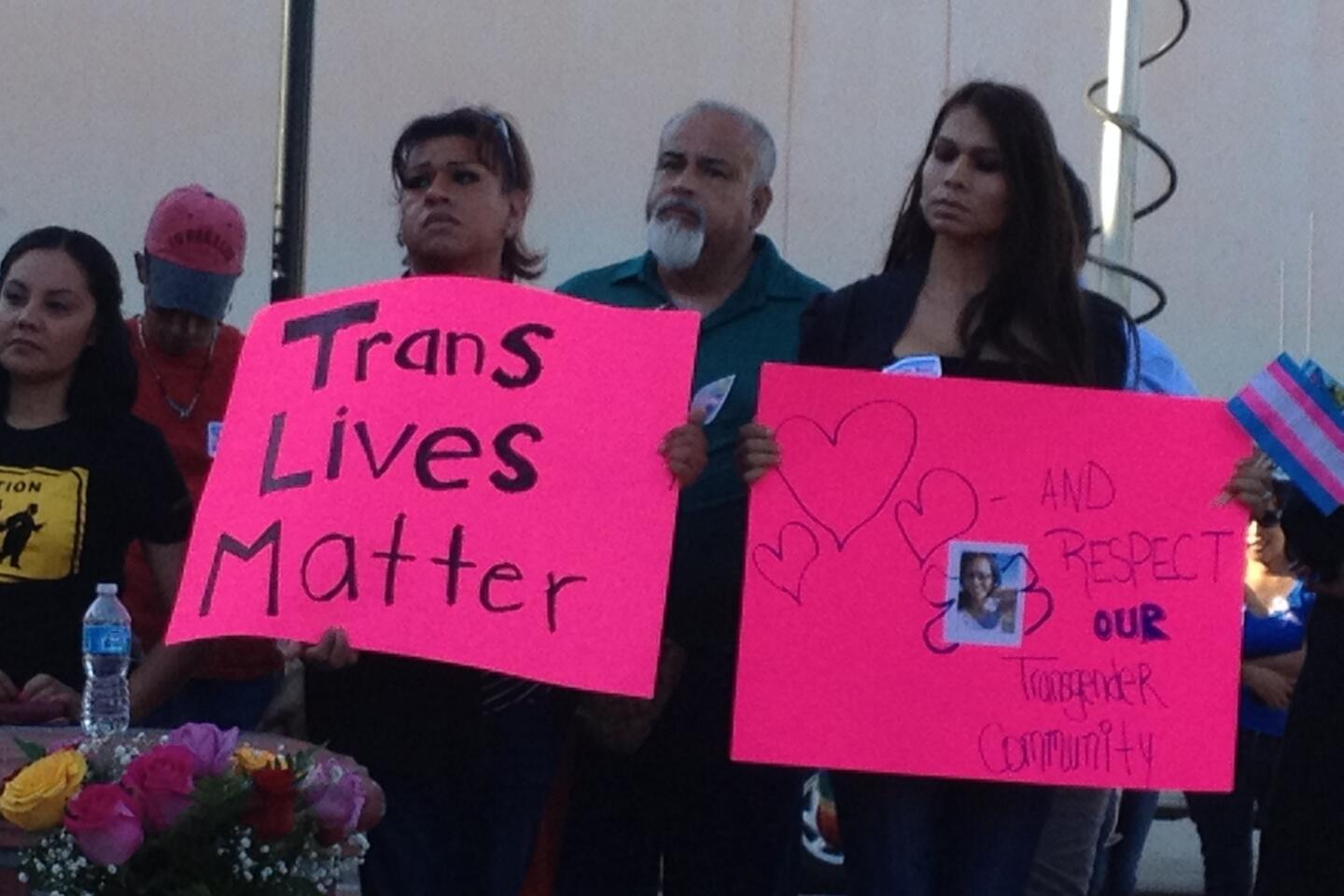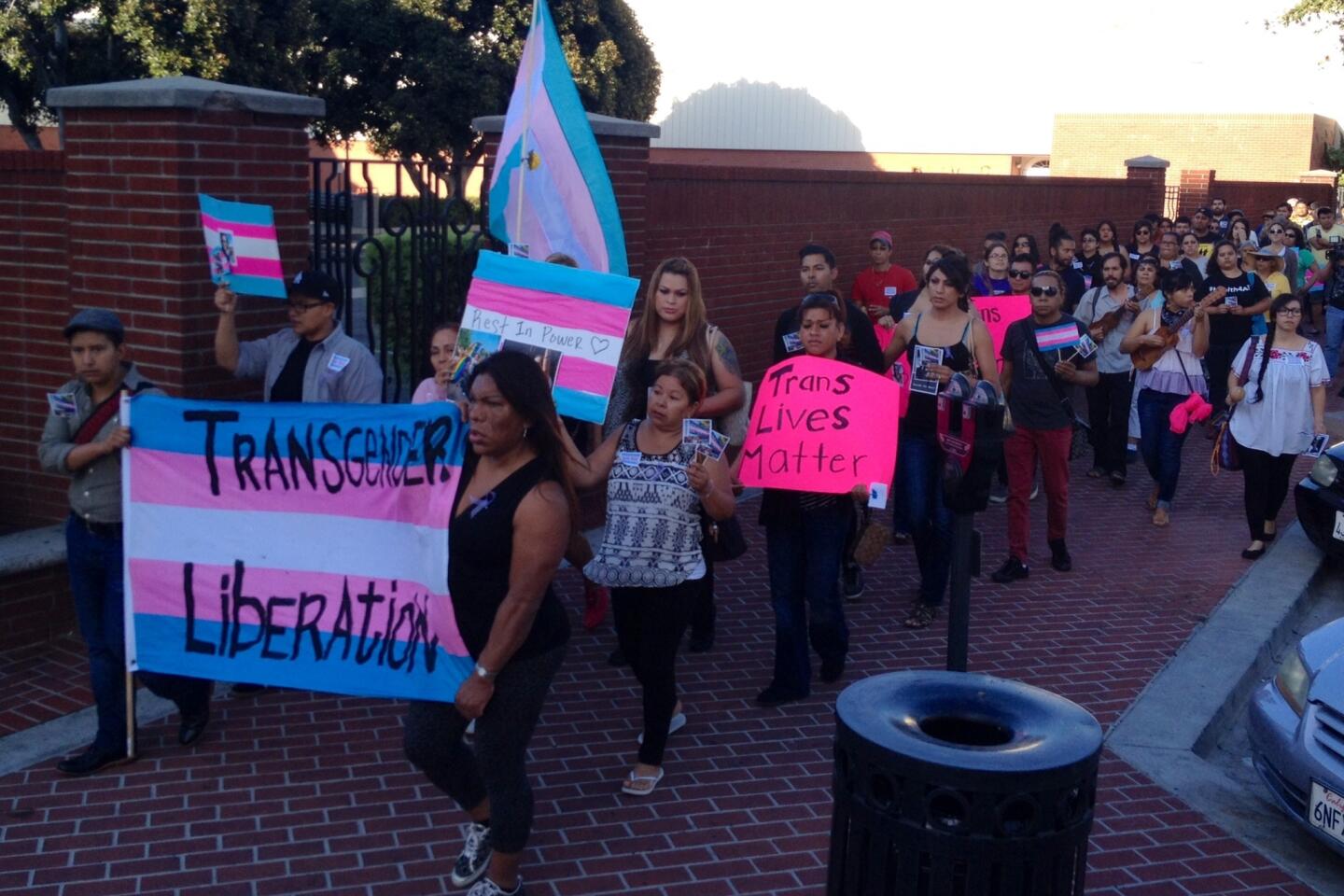Transgender woman’s mother, ‘other family’ mourn her death
- Share via
When her family had impromptu karaoke nights, Zoraida Reyes’ go-to song was “Todos Me Miran” — a song that spoke of overcoming rejection.
It was only when it became the soundtrack for Reyes’ funeral that the young woman’s mother came to realize the full depth of the ballad.
A 28-year-old transgender woman, Reyes’ body was found dumped outside a fast-food restaurant in a busy corner of Anaheim early this month. Police said the woman’s death was suspicious but have stopped short of ruling it foul play.
But to those in the transgender community, Reyes’ death renewed their shared fears of the potential for ridicule and violence. And for Reyes’ mother, it was a reminder that life is often too short.
During funeral services this week, Macrina Reyes threw herself over her daughter’s light pink coffin, asking her for forgiveness and — clutching a single white rose as she fought tears — telling her she loved her.
“I asked her for forgiveness because I didn’t tell her enough how much I loved her,” Macrina Reyes said in Spanish. “I also wish I would’ve gotten to know her other family before she died.”
She called the people her daughter met through her work with transgender and immigrant rights groups her “second family.” Macrina Reyes said she had failed to ask her daughter enough about her life outside their home or about being transgender. She said they bonded, however, by singing the ballads of Mexican divas like Gloria Trevi and Jenni Rivera.
“I want to get closer to her second family now,” Macrina Reyes said. “They’ve helped me get through this.”
Zoraida Reyes was a member of the Orange County Dream Team, DeColores Queer Orange County and Familia: Trans Queer Liberation Movement. Organizers said that in recent months she had started to come into her own, adding a strong voice to the movements and weaving transgender concerns into her immigrant rights work.
Many recalled Reyes — thin and dark-haired — chanting through a megaphone at a May 27 protest, calling on Santa Ana to end its contract with Immigration and Customs Enforcement.
“Many of us aren’t visible,” said Bamby Salcedo, a friend and president of the Trans-Latin@ Coalition. “Zoraida was one of those transgender individuals who are part of the movement and worked hard to bring our struggles to the forefront.”
The National Coalition of Anti-Violence Programs issued a statement about Reyes’ death expressing concern because of where she was found and the police conclusion that she had been dumped there after she died.
Transgender women and people of color are disproportionally affected by violence, said Osman Ahmed, the group’s research and education coordinator at the New York City Anti-Violence Project, in a statement.
The organization documented 18 anti-LGBTQ homicides last year, according to a May 2014 report. Nearly three-quarters of the victims were identified as transgender women, and 67% of them were transgender women of color.
Alexa Vasquez, 25, of Santa Ana said she met Reyes in 2007 and remembers her as a confidant during her own transition and the first person to take her to a gay club.
“She taught me what life as a trans woman looked like,” Vasquez said.
She also witnessed how Reyes, like other immigrant transgender women, struggled to get a job or adequate healthcare. At the time of her death she was unemployed but continued to apply for jobs wherever she could.
“Zoraida was rejected from retail and food service jobs she was way overqualified for because people would notice she was transgender,” Vasquez said. “As a society we are constantly letting trans women down and turning our back to them.”
Reyes had attended UC Santa Barbara, taking classes in Chicano studies, Vasquez said, but dropped out because of tuition costs. The two lived together in Santa Ana with a group of friends, but eventually Reyes had to move back in with her family for financial reasons.
It was a hard decision because Reyes didn’t believe she had the support of her family, Vasquez said.
Reyes used to go by Ale but later changed her name to Zoraida. She told Vasquez there was no story behind it, she just liked how it sounded.
“That’s how Zoraida worked,” Vasquez said. “She just felt that name.”
Another of her friends, Jorge Gutierrez, an LGBT and immigrant rights organizer, said most people thought Reyes was shy. She may have been shy, he said, but she was also very observant and chose her words wisely.
“She broke away from her shy shell, she had a lot of clarity in what she wanted to say and do,” Gutierrez said. “She taught me how to be proud and how to be fearless when I was being myself.”
Twitter: @AdolfoFlores3
More to Read
Sign up for Essential California
The most important California stories and recommendations in your inbox every morning.
You may occasionally receive promotional content from the Los Angeles Times.
